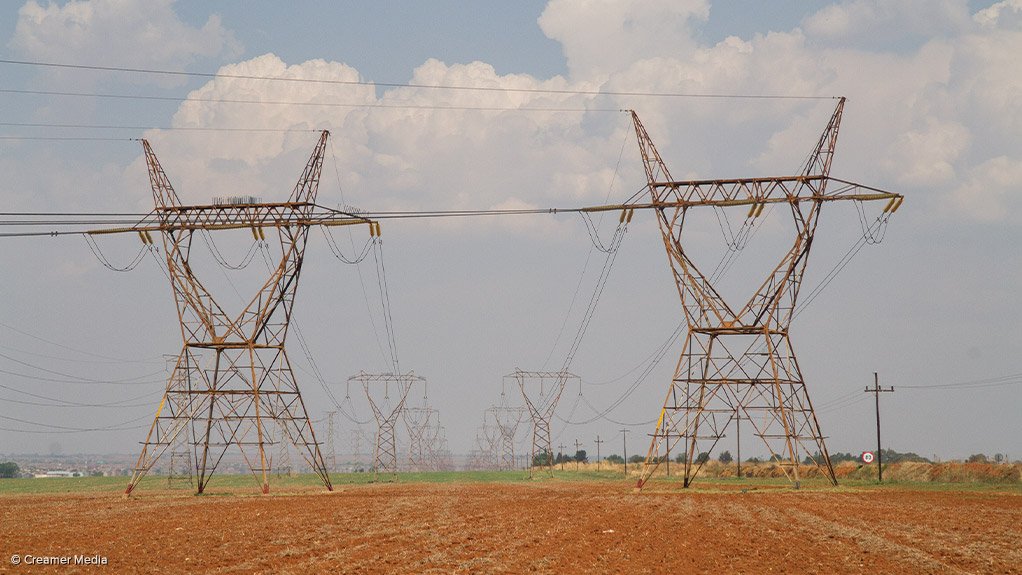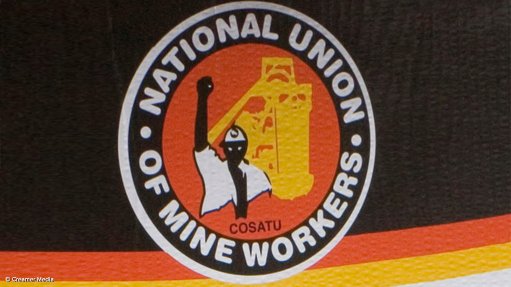Graham-Maré assures govt is evaluating independent transmission infrastructure provider model
While South Africa has seen the installation of more than 590 MW of rooftop solar power in the year-to-date, which adds to other renewable-energy installations, the question remains whether State-owned power utility Eskom will be able to timeously build the 14 000 km of transmission lines needed to expand the electricity network.
In response to questions raised during Steel and Engineering Industries Federation of Southern Africa’s Ministerial Conference hosted on September 17, Energy and Electricity Deputy Minister Samantha Graham-Maré said government was exploring options to alleviate pressure on the national grid.
The utility, through the newly incorporated National Transmission Company of South Africa (NTCSA), aims to build 14 000 km of transmission lines over the next decade, at a cost of more than R370-billion; however, in the 2023/24 financial year, it only managed to build 74 km of transmission lines, against a target of 166 km for the year.
The 74.4 km it completed in 2023/24 represents just 5.3% of the 1 400 km that NTCSA will need to build each year to achieve the 14 000 km goal.
Graham-Maré acknowledged the need for better legislation and policy implementation, particularly in respect of public-private partnerships (PPPs), which had experienced resistance in many prior administrations.
She added that government had historically preferred dealing with other governments rather than internal private-sector role-players – which the Government of National Unity (GNU) is working on a practical level to change.
Graham-Maré said there had been widespread acknowledgement in Cabinet and committee discussions that PPPs were necessary to solve the energy crisis, as well as to develop immediate solutions rather than waiting for policies to be finalised.
As part of the solution to the transmission infrastructure issue, Graham-Maré said government was increasingly looking at local energy production to “bypass” national grid constraints. “Government is exploring hybrid models for transmission involving independent providers and local energy solutions,” she confirmed.
She elaborated that her department was considering a privatisation type of scenario where companies could independently build and operate transmission infrastructure, in addition to a build, operate and transfer model. She likened the idea of independent transmission operators in the country to the independent power producers that had built generation assets under the Renewable Energy Independent Power Producer Procurement Programme.
In terms of local energy production, Graham-Maré said areas that needed more electricity but did not have grid connections may benefit from small-scale embedded generation that fed directly into a municipal grid, rather than the national grid. “We are still building on that model, before we are in a position to ask for requests for proposals,” she stated.
The Deputy Minister also assured delegates at the conference that her department was consulting with economists and experts to improve modelling and address inaccuracies in integrated resource planning. Government was also in the process of reviewing the tariff methodology for electricity to address affordability concerns.
Graham-Maré mentioned that Eskom itself and municipalities were not receiving the necessary revenues owing to the high cost of electricity, as more consumers have to choose between buying food and buying electricity.
Graham-Maré also responded to other issues raised by delegates such as transparency in the department’s decisions, and proper public consultation. She assured that the seventh administration aimed to promote transparency in all its actions and undertake meaningful public participation while being more effective with products such as the Integrated Resources Plan, including its turnaround time for approvals.
STREAMLINING INFRASTRUCTURE ROLLOUT
Public Works and Infrastructure Minister Dean Macpherson agreed with Graham-Maré that the GNU acknowledged the importance of infrastructure investment, industrialisation for job creation and how partnerships between government and the private sector could achieve economic growth.
He mentioned how municipalities were not spending enough on infrastructure development, how often projects were delayed and how regularly poor construction quality was present in local projects.
Macpherson is driving the expansion of Infrastructure South Africa as a point of entry for accelerated infrastructure investment, particularly by streamlining bureaucratic processes and prioritising projects.
He confirmed that his department was finalising the establishment of two advisory committees in the Minister’s office focused on expediting infrastructure delivery and public asset management.
Macpherson, having come from an opposition party, recognised government’s general limitations in skills, money and expertise, making partnerships with the private sector necessary, as well as blended models of financing for shared risk and a stronger pipeline of bankable projects.
Moreover, he stated his goal as being the conversion of State-owned assets into income-generating entities to support broader economic goals, as well as dealing decisively with the construction mafia across the country and helping to reform National Treasury’s rules of local procurement so as to prevent criminals exploiting loopholes.
Macpherson ultimately called for the public and private sectors to continue collaborating on improving the lives of all South Africans.
Article Enquiry
Email Article
Save Article
Feedback
To advertise email advertising@creamermedia.co.za or click here
Press Office
Announcements
What's On
Subscribe to improve your user experience...
Option 1 (equivalent of R125 a month):
Receive a weekly copy of Creamer Media's Engineering News & Mining Weekly magazine
(print copy for those in South Africa and e-magazine for those outside of South Africa)
Receive daily email newsletters
Access to full search results
Access archive of magazine back copies
Access to Projects in Progress
Access to ONE Research Report of your choice in PDF format
Option 2 (equivalent of R375 a month):
All benefits from Option 1
PLUS
Access to Creamer Media's Research Channel Africa for ALL Research Reports, in PDF format, on various industrial and mining sectors
including Electricity; Water; Energy Transition; Hydrogen; Roads, Rail and Ports; Coal; Gold; Platinum; Battery Metals; etc.
Already a subscriber?
Forgotten your password?
Receive weekly copy of Creamer Media's Engineering News & Mining Weekly magazine (print copy for those in South Africa and e-magazine for those outside of South Africa)
➕
Recieve daily email newsletters
➕
Access to full search results
➕
Access archive of magazine back copies
➕
Access to Projects in Progress
➕
Access to ONE Research Report of your choice in PDF format
RESEARCH CHANNEL AFRICA
R4500 (equivalent of R375 a month)
SUBSCRIBEAll benefits from Option 1
➕
Access to Creamer Media's Research Channel Africa for ALL Research Reports on various industrial and mining sectors, in PDF format, including on:
Electricity
➕
Water
➕
Energy Transition
➕
Hydrogen
➕
Roads, Rail and Ports
➕
Coal
➕
Gold
➕
Platinum
➕
Battery Metals
➕
etc.
Receive all benefits from Option 1 or Option 2 delivered to numerous people at your company
➕
Multiple User names and Passwords for simultaneous log-ins
➕
Intranet integration access to all in your organisation





















